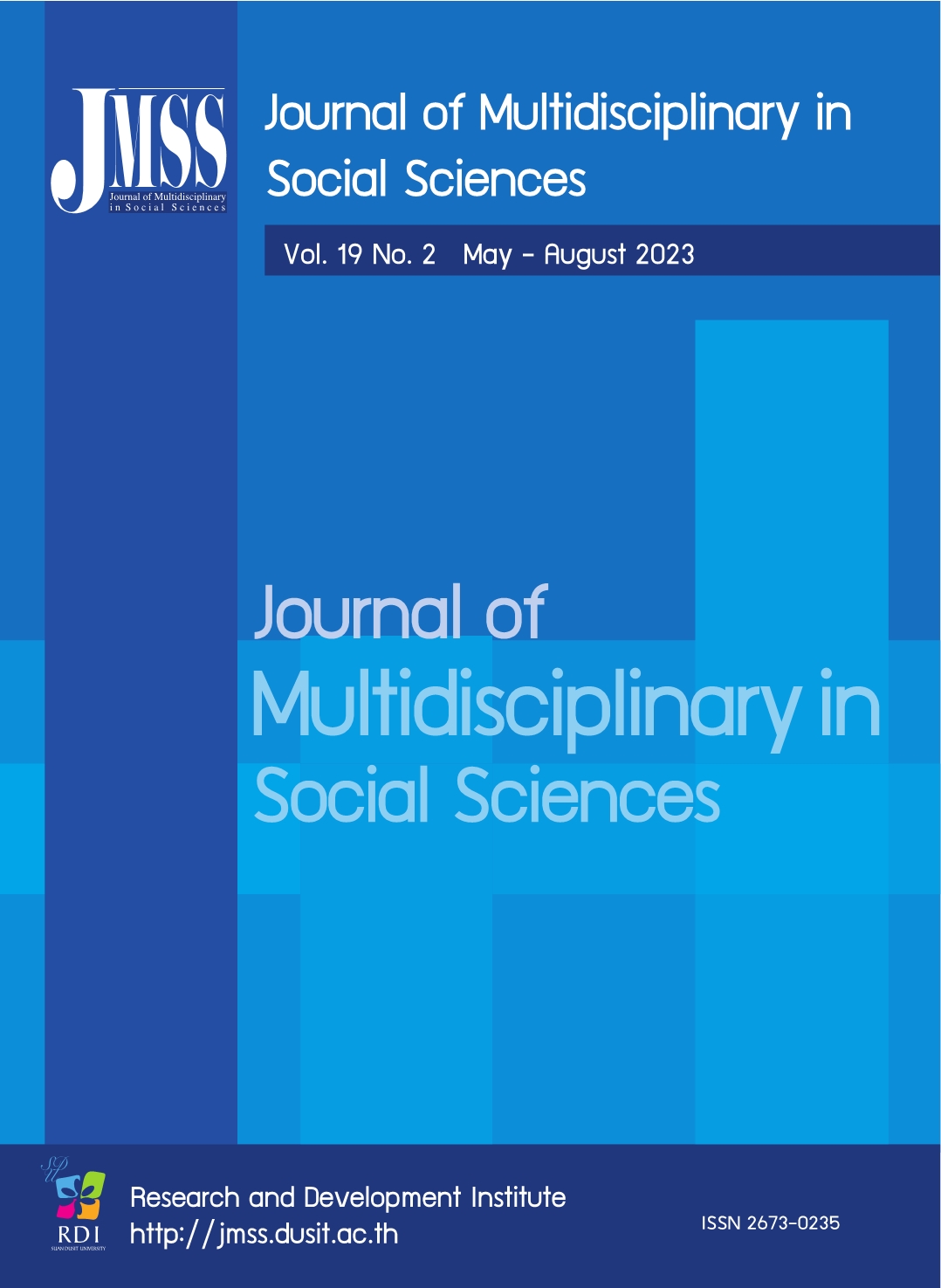A Study of Foreign Tourists’ Attitudes toward English Communication Problems of the Staff at Tourist Assistance Center at Phuket International Airport
Keywords:
Attitudes, Foreign tourists, English communication problems, TAC staff, Phuket international airportAbstract
This qualitative research examined the attitudes of foreign tourists toward oral English communication problems of Thai staff working for the Tourist Assistance Center (TAC) at Phuket International Airport. Moreover, the research was able to obtain the foreign tourists’ recommendations about English communication for the staff. The participants of this study were seven foreign tourists who asked for help at the tourist assistance center. The main instrument used was a semi-structured interview. The results showed that the foreign tourists had various views toward the English communication problems faced by the Thai staff. The problems were about listening and speaking skills, accents, pronunciation, speaking speed, and vocabulary usage. Further, all the foreign tourists provided several recommendations to improve the staff’s English ability in order to increase the effectiveness of TAC staff communication.
References
Amazing Thailand. (n.d.) Phuket. Retrieved February 28, 2022, from https://www.tourismthailand.org/Destinations/Provinces/Phuket/350
Astawa, I. N., Mantra, I. B. N., & Widiastuti, I. A. M. S. (2019). Communicative English language test: A prospective measuring device for tourism practitioners’ employability. Proceedings of The 9th International Conference of Rural Research and Planning Group, Universitas Mahasaraswati Denpasar Bali Indonesia. Retrieved March 2, 2022, from https://e-journal.unmas.ac.id/index.php/IC-RRPG/article/view/251
Chaichana, M., Cheawchan, S., & Thongnen, S. (2017). English communication problems of receptionists at hotels in Nan in foreign tourists’ perspective. Proceedings of the 9th Conference of Creative RMUT and Sustainable Innovation for Thailand 4.0, RMUT Lanna, Nan, 321-328. Retrieved March 11, 2022, from http://repository.rmutr.ac.th/?fbclid=IwAR1kCksHk2QbnQWefhRjJLxaYFGgW-jx18d91rRmumBB4uD0AB-Fw4urbnQ
Clark, H. H., & Clark, E. V. (1977). Psychology and language. New York: Harcourt Brace Jovanovitch.
Foss, D. J., & Hakes, D. T. (1978). Psycholinguistics. Englewood Cliffs, NJ: Prentice-Hall.
Garrett, P. (2007). Language attitudes. In C. Llamas, L. Mullany, & P. Stockwell (Eds.), The Routledge companion to sociolinguistics (pp. 116-121). London: Routledge.
Leelaviriyawong, S. (2015). Foreign tourists’ satisfaction towards English oral communication with Thai vendors in Bangkok. Unpublished independent study paper of MA (English for Careers), Thammasat University. Retrieved February 3, 2022, from http://ethesisarchive.library.tu.ac.th/thesis/2015/TU_2015_5721040870_4515_2506.pdf
Nishanthi, R. (2018). The Importance of learning English in today world. International Journal of Trend in Scientific Research and Development, 3(1), 871-874.
Richards, J. C. (1983). Listening comprehension: Approach, design, procedure. TESOL Quarterly. 17(2), 219-240. Royal Thai Embassy. (2020). Tourist assistance center: Ministry of tourism and sports. Retrieved February 27, 2022, from https://lima.thaiembassy.org/en/content/tourist-assistance-center-ministry-of-tourismand?page=5d846a0415e39c31dc006013&menu=5d846a0415e39c31dc006014
UNESCO. (n.d). Phuket. Retrieved March 5, 2022, from https://en.unesco.org/creative-cities/phuket
Young, R. W., & Faux, W. V. (2012). Native and non-native English speakers’perspectives of ineffectiveness and inappropriateness in difficult conversations. Communication Research Reports, 29(3), 185-192.
Zahn, C. J., & Hopper, R. (1985). Measuring language attitudes: The speech evaluation instrument. Journal of Language and Social Psychology. 4(2), 113–123.
Downloads
Published
How to Cite
Issue
Section
License

This work is licensed under a Creative Commons Attribution-NonCommercial-NoDerivatives 4.0 International License.








